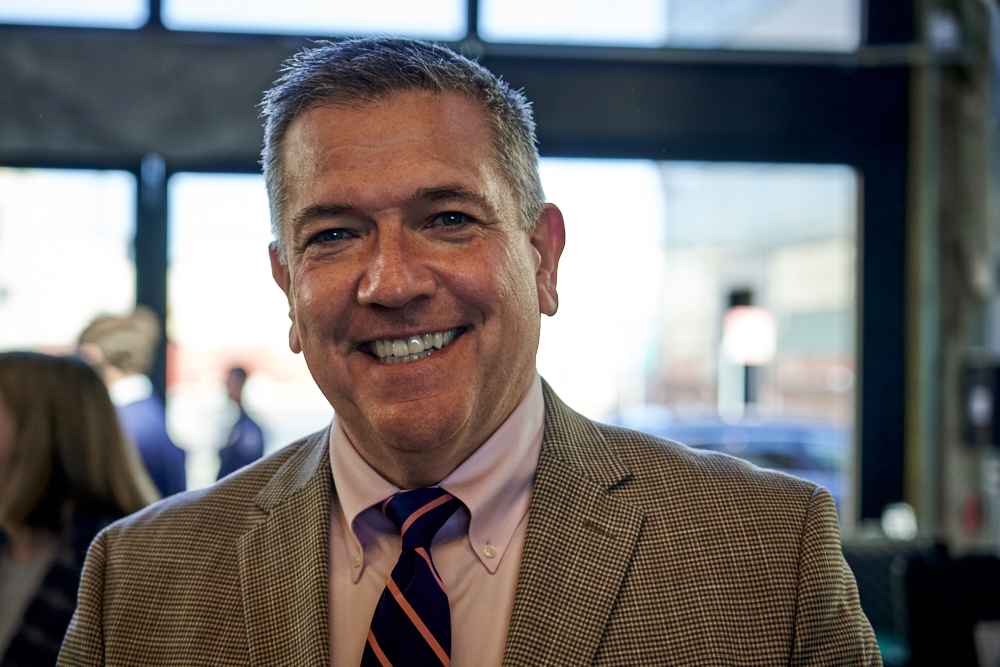The Board of Supes postponed for a week a decision on limiting remote public comment, with Sup. Matt Dorsey, who opposes the plan, saying he thinks there is room for compromise.
The proposal, by Sup. Rafael Mandelman, would require people who want to address the board or its committees to be present at City Hall, unless they have a disability that requires accommodation.
Mandelman argues that remote comments take a lot of the supervisors’ limited time, and aren’t necessarily a path to better decision-making.

He, and several other supes, said that some hearings have been in effect hijacked by people who many not even live in the city, who are all using the same talking points, and forcing the members to listen for hours and hours, undermining effective deliberations.
The Rules Committee sent it to the board without recommendation Monday, after Dorsey failed to get support for motion to maintain the status quo.
Four sups made it clear Tuesday that they don’t support any new restrictions on public comment. Sups. Connie Chan, Myrna Melgar, Dean Preston, and Dorsey all said that remote comment is a positive thing.
“The right of the people to petition their government is a fundamental Constitutional right,” Dorsey said. He acknowledged that “the instruments of our democracy can be weaponized,” but said that “the only thing worse than abusing these instruments is government passing laws limiting those instruments.”
Melgar said that “limiting public comment is a step backward. … Democracy is messy. We should do more, not less.”
Help us save local journalism!
Every tax-deductible donation helps us grow to cover the issues that mean the most to our community. Become a 48 Hills Hero and support the only daily progressive news source in the Bay Area.
Chan said she’s in favor of more government efficiency, “but not at the expense of democracy.”
Preston said that since remote comment began, “I’ve noticed a positive shift, of people who could not come to City Hall” now participating.
He said the examples of disruptions that interfered with public business were pretty rare.
Mandelman seemed to acknowledge that he lacked a clear majority, but said that the time decision-makers have is limited. “If you want us to spend that time listening to one-two-minute presentations from people who don’t even live in the city, I’m not sure we are doing the people’s business.”
There’s some indication that changes the current rules will be challenging. At the Rules Committee, Jennifer Johnston, a deputy city administrator, said that her office has been advising policy bodies to allow anyone who requests an accommodation be allowed to use remote comment, and to interpret those requests as broadly as possible.
Everyone agrees that under the Americans with Disabilities Act, the city and all of its agencies must allow people who are unable to attend a meeting in person because of a disability to attend and comment remotely. “We are not going back to before 2020,” Walton noted.
But that’s tricky, too: Dorsey noted that some people who have disabilities—who, for example, might be HIV-positive and immune compromised—don’t want to make that public.
So who’s going to decide if a disability claim is legit? And will that be a cumbersome process that requires advance notice?
“We are advising policy bodies to allow this up until the day of the meeting,” Johnston said.
More than 100 community-based organizations have lined up against limiting remote comments. Nicole Bohn, director of the Mayor’s Office on Disability, told the supes that “we have all heard that the disability community does not want limits, and does not want people having to self-disclose a disability. It’s difficult how to manage how we do that.”
I’m not sure what a compromise might look like. I suppose the supes could, for example, allow remote public comment, but limit the total amount of time allotted. Then, of course, someone would have to decide who gets access to that time; is it the first ones who sign up (potentially unfair for a lot of reasons) or some sort of lottery (complicated to implement)?
It’s all going to come back to the board next week, and since this measure has been through the committee process, the board won’t be taking further live public comment.
There are, however, plenty of other ways to contact the supes.



